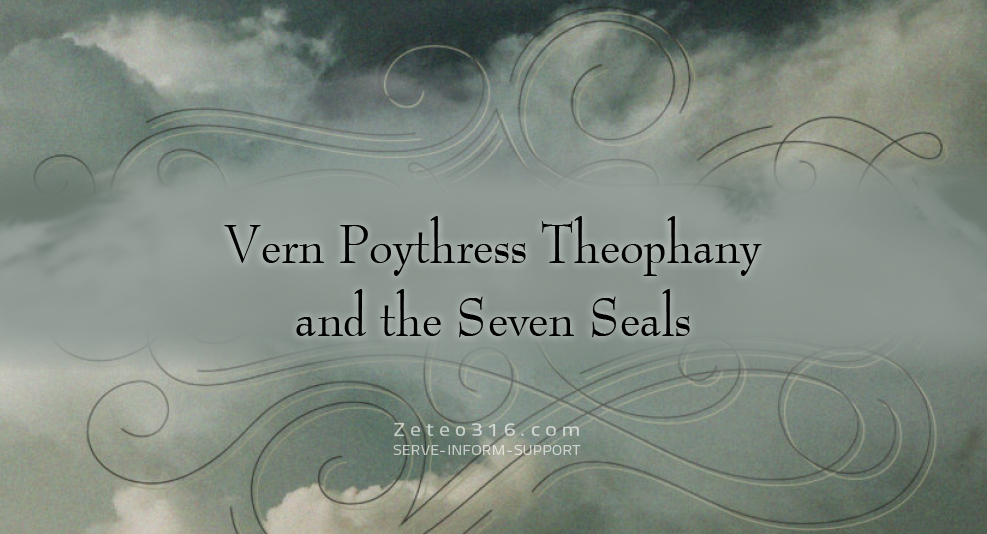
Vern Poythress is an amillennialist. From my premil perspective I disagree with much of his eschatology. For example, in one article he writes:
The new appreciation of inaugurated eschatology has already generated an atmosphere where we find some fresh exegetical argumentation in favor of amillennialism. Geerhardus Vos in The Pauline Eschatology offers an exegesis of 1 Corinthians 15 in the light of inaugurated eschatology. An article of mine argues that 2 Thessalonians 1 has amillennial implications when read within the eschatological atmosphere of the first century church, in which inaugurated eschatology was normal thinking.
It isn’t my intention to respond in-depth to this paragraph. However, neither 1 Cor 15 or 2 Thess 1 presents major difficulties for premillennialism. Regarding the former, Mike Vlach and Matt Waymeyer dedicate compelling chapters to it in their respective books (Premillennialism: Why there Must Be a Future Earthly Kingdom of Jesus; and Amillennialism and the Age to Come).
Regarding the latter (2 Thess 1), Mike Stallard and Richard Mayhue respond to perceived pretribulational difficulties in their Thessalonians commentaries. The main issue I have with Poythress’ statement above is that there are other texts which appear to contradict amillennialism. The amillennialist has to work extra hard to avoid the plain-sense meaning of these.
Recently I picked up a copy of Poythress’ book Theophany: A Biblical Theology of God’s Appearing. You can read a brief review HERE. Chapter 18 is titled, Reflections of God in the Book of Revelation. Interestingly, Poythress writes:
The entire sequence of judgments in 6:1-8:1 resides within the framework of theophany, and the actions all issue from theophany. Moreover, the specific judgments with the first four seals take place in response to orders coming from the living creatures (6:1, 3, 5, 7). The living creatures, as we have seen, reflect the character of God. The passages describe judgments from God, not merely random instances of unaccountable suffering. They reflect the anger and justice of God. In a broad sense, the visions are instances of judgment reflecting the justice of God. This justice is executed through the Lamb and the “seven spirits” (the Holy Spirit). (p 140)
Poythress says these judgments take place with the opening of the seven seals. Yet he adds that, from one point of view, portents of this cycle of judgment begin even before this – at Rev 4 and Rev 5 where the Lamb is introduced.
Pretribulational premillennialists can agree with Poythress here. One aspect of God’s judgment which he didn’t discuss was the Two Witnesses of Revelation. The fact they have power to torment earth dwellers through various means, including plagues and fire, echoes elements of God’s wrath. My guess is that Poythress’ amillennialism doesn’t allow for these Two Witnesses to be literal persons.
Non-pretribulational premillennialists work hard to keep God’s wrath out of the first six seals (or beginning with the 6th). They raise objections; for example, the 5th seal martyrs (these have been answered). Some assert that the cry of the unbelievers in Rev 6:16-17 anticipates God’s future wrath. Given what Paul tells us in 1 Thess 5:2-3, one wonders how unbelievers could possibly be prophetically nuanced enough to predict God’s impending wrath (i.e., allegedly only present in the trumpets & bowls) – when it would be more natural for them to feel that it is already present in the earthquake.
Despite differences I have with Poythress’ eschatology, it’s refreshing that he recognizes God’s sovereign wrath present in all the seals of Revelation. He understands that God expresses this wrath via a variety of instruments. This is one area where pre-trib premils can heartily agree.
As a side note, Poythress considers the twenty four elders to be angels. This dovetails with his theophanic argument. I cautiously disagree. See Tony Garland’s commentary on this subject.
Maranatha!
